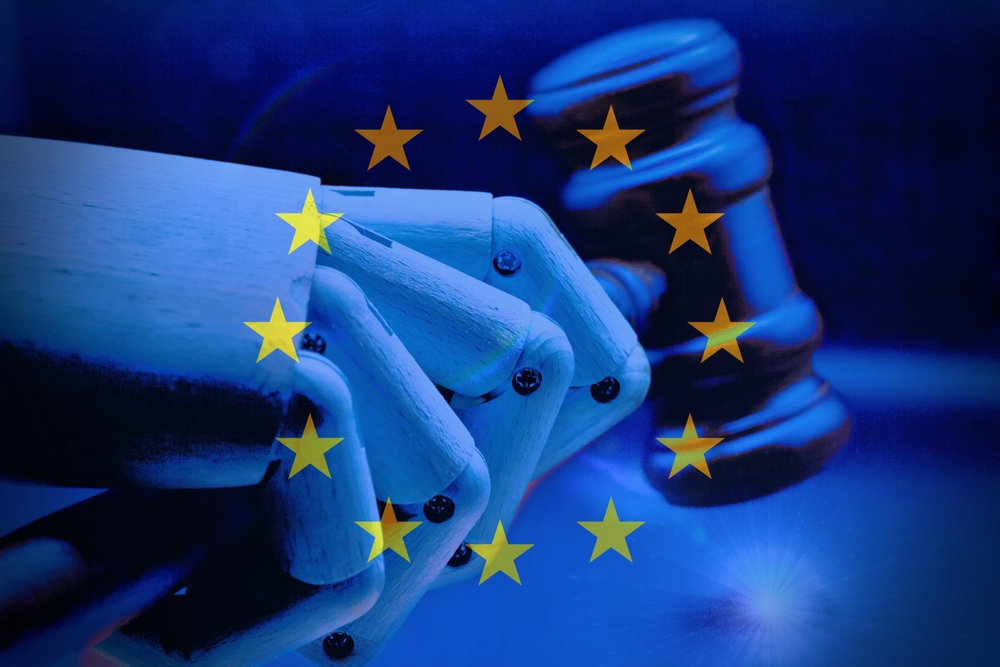The EU Artificial Intelligence Act is a set of regulations designed to classify and control the development of AI within the EU based on a specific risk level.
The main purpose of this EU AI law is to ensure that AI systems are safe, secure and promote reliable AI development, but can the desired outcome be real?
We spoke to four experts in the technology department to get an idea of this new law and how effective it is, as they weigh the pros and cons of the law.
Increase security by lowering risk
One more prominent aspect of this new regulation is the classification of risk levels within AI systems. Through this clear classification and identification of security risks, businesses should be able to control the reliability of their systems.
In the case of Martin Davies, Drata’s Audit Alliance Manager: “The EU AI Act has a clear, common purpose to reduce risk to end users. By banning high-risk applications of AI technology, the risk of unethical surveillance and other misuse measures are certainly reduced.
“Even in situations where high-risk biometric AI applications are still permitted for law enforcement purposes, there are still restrictions on the purpose and location of such applications that prevent misuse (intentional or otherwise) in this sector.”
As AI will become a standard integration into modern technology, it becomes even more important to build a secure system that will perform as intended.
Ilona Cohen, Hackerone’s Chief Legal and Policy Officer, emphasizes the importance of this strong stance on security.
“We also use a variety of methodologies to support our commitment to AI model assessments and address systemic risks, including security concerns and unintended consequences.”
Drata’s Davies continues: Furthermore, these shocking AI systems, which remain permitted under the EU AI law, still require impact assessments.
“This is a step in the right direction, and the proposed penalties mean that developers of such influential AI applications will be held responsible for the outcome.
“The positive impact of this legislation on creating a safe and reliable AI ecosystem within the EU will lead to wider adoption of the technology. To that extent, this regulation will promote innovation within defined parameters that benefit only the AI industry.”
But not everyone thinks that regulations will have such an immediate positive impact.
Global preparation for AI regulations
Around the world, governments focus on compliance and regulation of the development of artificial intelligence. But this is by no means a feat.
According to Hugh Scantlebury, CEO and founder of AQILLA, “Companies, individuals and governments around the world are working on AI-related projects in a nearly unimaginable range, so trying to regulate technology is like controlling the high seas or trying to bring law and order to the wild west.
“If you try to implement regulations, it must be global. And such an agreement seems unlikely to happen anytime soon. Otherwise, if one country, such as the EU or one country, such as the UK, tries to establish a ‘security framework’, developers will simply move to another jurisdiction to continue with different judicial terms. Russia, China, Iran, South Korea? ”
Global consensus is important to ensure an equal playing field to promote AI development while prioritizing security. As Commvault’s Field CTO EMEAI, Darren Thomson, explains:
“After some litigation, the UK has maintained a light touch to governance. Its AI action plan sets a commendable vision for the future, but undoubtedly has poor regulatory oversight. Meanwhile, the recently announced US AI action plan aims to brush regulatory hurdles under the carpet and win the global AI race.
“However, this regulatory difference is not a positive sign of progress, but rather a complex landscape for organizations building and implementing AI systems. The lack of cohesion will become an uneven playing field, perhaps a future with high-risk AI.
For Aqilla’s Scantlebury, “The birth of AI is second only to the foundation of the Internet in terms of its ability to fundamentally change our lives.
“Aside from the exaggeration, AI is still in its early stages and we just scratched the surface of what it could achieve. So now, no one is in a position to legislate.
So will EU AI law bring peace and harmony, or will it signal the beginning of more complexity and fragmentation? Only time can be seen.
Martin Davis, Dorata

Irona Cohen, Hackelon

Darren Thomson, Commvault

Hugh Scantleberry, Accra

Source link

